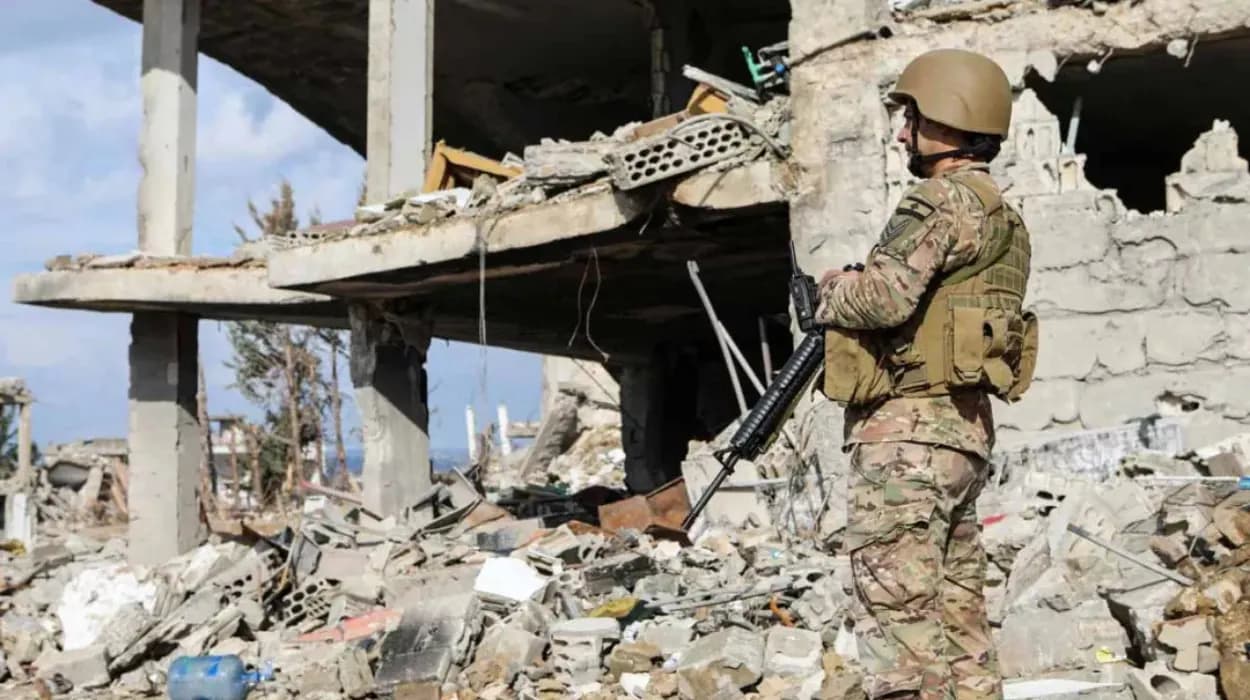Violence in Syria has forced thousands from their homes amid
escalating clashes, while the Israeli military has entered Lebanon, heightening
regional tensions. Meanwhile, a deadly fire broke out in a busy Iraqi shopping
mall, claiming dozens of lives.
What Is Behind the Surge in Violence and Displacement in Syria?
As reported by Sky News on 15 July 2025, the violence in
Syria has intensified significantly, leading to a fresh wave of displacement.
Conflict zones inside the country remain highly volatile with civilians bearing
the brunt of the clashes. The ongoing unrest stems from both internal factional
fighting and external military interventions which have exacerbated the
humanitarian crisis. Thousands of families are fleeing their homes, seeking
refuge in safer areas, contributing to one of the largest displacements of
populations in recent years in the region.
The international community has expressed growing concern
over the deteriorating situation, citing the severe impact on human lives and
infrastructure. Aid organisations warn of urgent needs for food, shelter, and
healthcare to accommodate the displaced populations. The breakdown of security
and governance in key areas complicates relief efforts and threatens regional
stability.
Israeli Military Entered Lebanon
Recent developments include an incursion of Israeli military
forces into southern Lebanon. According to multiple sources, including updates
from Sky News, this movement comes amid rising tensions on the Israel-Lebanon
border. The Israeli military action involves targeted operations aimed at
perceived militant threats from Hezbollah and other armed factions in the area.
The Israeli government has framed the operation as necessary
to prevent cross-border attacks and maintain its national security. Conversely,
Lebanese officials decry the incursion as a violation of sovereignty and an
escalation likely to provoke wider conflict in the already fragile region.
International observers urge both parties for restraint,
warning that sustained military engagement risks destabilising the Levant
further and drawing in neighbouring countries.
How Did the Deadly Fire at Iraqi Mall Occur and What Are Its Consequences?
On 14 July 2025, a catastrophic fire broke out at a shopping
mall in Iraq, killing dozens and injuring many more, as reported by local
media. The blaze started in the late afternoon in one of the busiest retail
complexes, quickly spreading due to inadequate fire safety measures and
overcrowded conditions.
Rescue operations encountered significant challenges, with
emergency services overwhelmed and structural hazards impeding quick access.
Hospital sources confirmed that casualties included men, women, and children,
with dozens listed in critical condition.
Authorities have launched an investigation into the cause of
the fire, looking into possible electrical faults or negligence. Fire safety
experts have cautioned about poor enforcement of regulations in Iraqi public
buildings, particularly commercial centres, highlighting the urgent need for
reform.
The tragedy has sparked public outcry over safety standards
and calls for government accountability in preventing such disasters in the
future.
Broader Regional Impact of These Events
The combined effects of Syrian displacement,
Israeli-Lebanese military tensions, and the Iraqi fire tragedy underscore the
fragile state of security and humanitarian conditions in the Middle East.
Experts interviewed by Sky News emphasise that these events reflect underlying
political instability, sectarian divisions, and systemic governance failures
across multiple countries.
The Syrian conflict continues to spill beyond its borders,
influencing refugee flows and diplomatic relations. Meanwhile, Israeli actions
in Lebanon could destabilise the tenuous peace maintained since previous
conflicts. Iraq faces domestic challenges in infrastructure and civil
protections, illustrated tragically by the mall fire.
These crises strain international aid efforts and complicate
diplomatic solutions to long-standing conflicts. Observers call for coordinated
responses addressing both immediate relief and long-term regional stability.
Who Are the Key Figures Commenting on These Situations?
Commentators quoted by Sky News and other outlets include
military analysts, humanitarian officials, and government spokespeople from the
affected countries. Israeli Defence Forces representatives justify their
incursion by citing security imperatives, while Lebanese authorities condemn
the action. Syrian humanitarian organisations stress the urgency of aid, and
Iraqi officials express condolences with promises of thorough investigation
into the mall disaster.
The international community, including the United Nations
and regional blocs, have appealed for de-escalation and increased humanitarian
support. No single voice dominates the narrative, reflecting the complex and
multifaceted nature of the crises.
What Can Be Expected Next in These Developing Stories?
Given the volatile contexts described, the situations in
Syria, Lebanon, and Iraq remain fluid. Future developments may include expanded
displacement within Syria, possible retaliatory military actions between Israel
and groups in Lebanon, and governmental reforms in Iraq focusing on safety
regulations.
